#anatolian turks
Text
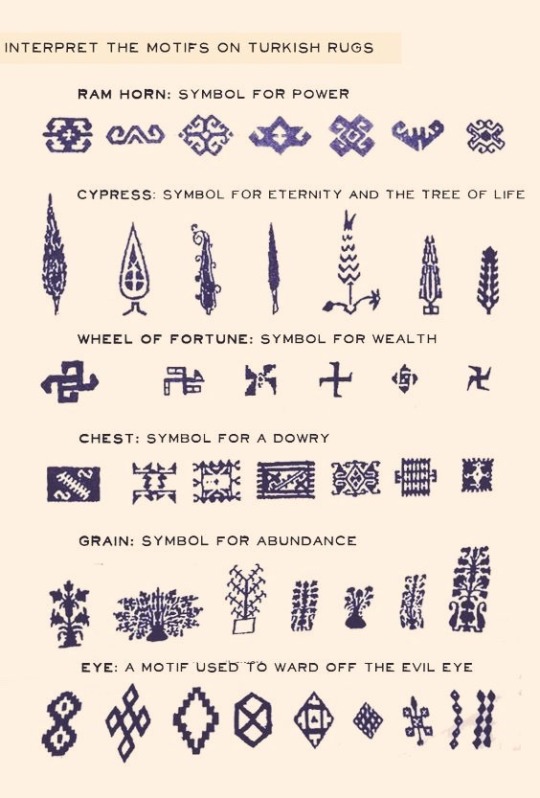
🪬
#turkic#turkic culture#turkish#anatolia#middle asia#culture#turkish rugs nz#alıntı#art#aesthetic#sanat#kilim#anatolian#anatolian turks#blue
15 notes
·
View notes
Text

Turkish woman, Turkish Republic, 1930.
5 notes
·
View notes
Note
Hi, i could really use some support. I was supposed to go on a big trip to Turkey for some sun, but I've busted my knee and now I'm bed-ridden in Wales instead. My doctor gave me this device to "help me experience a Turkish holiday" but I've no idea how to set it up.
Your doctor is absolutely right, Chronivac Travel offers great and authentic travel experiences. Here's something I think you'll like. Turkish guest worker on home leave. You can get your boarding pass at the Turkish Airlines counter. And until then, I've booked you the wheelchair service at the airport. After that you won't need it any more.
From the moment you check in, you will become a month younger every minute. And you'll have spent an extra month in Cardiff working on the rubbish collection. Hard work during the day. Hard training at the gym in the evening. And save every penny. After all, you want your family to be proud of you. You live in Cardiff with your cousin. He's the one who got you the job. That's why you speak very little other than Turkish. And in addition, every hour one of your grandparents becomes a real Anatolian.
Your knee problems are history within a minute of picking up your suitcase. And you can even say "goodbye" and "have a nice day" in Turkish. Your backpack is suddenly a hipbag. Almost a real Louis Vuitton. Your cousin has good sources for almost everything. And when you finally get through the one hour security check, you are 35 years old. Your father's father was Turkish. And for the last five years you've spoken almost nothing but Turkish. Your style of dress has already changed completely. Fake leather jacket, ripped jeans, expensive trainers. The latter are fake, of course. Your hair is short, your beard freshly shaved, but your beard growth is getting stronger. You already have a beard shadow again.
You spend most of the time until boarding in the smoking cabin. The flights to the family are okay, but the fact that you can't have a smoke for four hours is torture. At the beginning you read the sports section of the Hurriyet. But after a few minutes you start to discuss football passionately with the other fellas around you.
You are 30 years old when you leave. Your father is a proud Anatole. And so are you. Proud of your manly body and your manly genes, which dominate those of your mother. No one takes you for a Welshman. And when you change planes to Antalya after a total of four hours in Amsterdam, you are no longer one either. A 20-year-old Turk through and through. Macho at its best. But if you can't fuck a chick, you fuck a cousin. If you don't make eye contact, it's not homo.

And when you finally get to your family's summer house and sit on the leather sofa, proudly watching everyone unwrap their presents, you check out your cousins. One or the other is due tonight!
95 notes
·
View notes
Note
https://vm.tiktok.com/ZGJEygy6e/
Okay but it's an issue we should discuss when they post videos like this. Had for example a Turkish person get any other Balkan country they would laugh about it, but when they get Greek they throw a tantrum.
Also many deny that they may have Greek DNA after hundreds of years of marrying Greek slaves so why do they act surprised 😅
You linked this video:
Like... let me be totally honest... I am weirded out by young Greek (and sometimes Turkish) people who act like it's such a shock when it comes to their notice (finally) that some Greek and Turkish people do not like each other. A lot of young people claim that the hostility between the countries is purely politically motivated and does not represent the people at all but that's not entirely true. Because no matter all the political propaganda against each other, for it to work and spread, the everyday people have to actually be receptive of it, whether in full earnest or even by decriminalizing it as a joke. The reason Turkey politically holds an aggressive stance against Greece for decades or maybe since its foundation, the reason this political strategy works, is because a lot of people are receptive and approve of it or just don't mind it enough to not make jokes with it. Of course many many Turkish people say they love our cultural similarities and love their Greek friends and come here for holiday etc etc , but this doesn't change the fact that if you ask them, most of them will agree that Turkey must expand and Greece should shrink or that Greeks unfairly revolted against the perfect good Ottoman Empire or they will attempt to diminish the cultural and historical impact and imprint of the Greeks in Asia Minor. Similarly, Greek people might acknowledge that Erdogan does not represent all Turkish people and that we have many similarities between us and that Turkish culture is beautiful but that doesn't change the fact that all Greeks will pick Turkey as the number one military threat for Greece or that they don't all express bitterness and contempt for the Greek cultural progress stump during the Ottoman occupation or that they are not angry at the Ancient and Byzantine Greek cultural erasure that is taking place in Turkey now. Greeks and Turks can be great friends but it has to work through mutual agreement to never take a serious side in any of these issues in earnest because sooner or later there might be arguments. Again, this is not for every Greek or Turk, but it is really a big percentage unfortunately.
This Turkish girl who was turned off when she got the Greek flag, she commented that it was kind of a conscious joke and I don't think it was so serious. The Greek girl makes a fair point but there is indeed a point she is missing - Turkish school actively portrays Greeks as oppressors!!!!! Greeks are portrayed as a) ancient oppressors (Turks also follow the late Balkan trend of trying to claim heritage from extinct ancient cultures like the Hittites and the Luwians and a lot others who they absolutely have no connection to and try to portray themselves as the original victims and the Greeks as the aggressors (despite the teeny tiny detail that the ancient non-Greek Anatolian peoples fought and killed each other way more than they ever fought with Greeks), b) as medievally extinct (it is a BIG NO NO to admit that the Byzantines were mostly Greeks especially in the late period they got in touch with them or to refer to the largely Greek cultural identity of the Eastern Romans / Byzantines or sometimes to even consider that the Byzantine Empire had a great culture and history as they often claim Ottomans saved the Byzantines from themselves (???) by conquering them!!!!!!, c) the Modern Greeks as horrible and ungrateful traitors, as the Ottoman Empire was a utopia giving them countless rights and benefits and those rats dared to rebel against it, d) the current Greeks as unreliable potential aggressors, with the argument that Greece invaded "Turkey" in the early 20th century, which technically wasn't Turkey yet but the dissolving Ottoman Empire and with the excuse of World War I either the great powers or the neighbouring countries with nationals in these lands were making claims (while of course simultaneously they deny the Greek and Armenian and Assyrian Genocides, they deny the countless progroms against them and they deny that at the time Greece was making such claims the coasts of Asia Minor indeed still had Greek majorities in most areas and Turks were deeper inland but of course then they killed or kicked everyone out and Greek majority was no more, problem solved!). So they entirely paint Greeks as the bad guys and refuse all their widely ascknowledged war crimes. With this in mind, of course the youngsters make jokes such as "oh what my ancestors would think of me dating a Greek dude". Your ancestors were getting more Greek dudes than you, dear. And I am not saying it as an insult. It was mutual. Our Greek ancestors also were getting more Turkish dudes than us. But it was the Turks' choice to take these lands by force. Pretty sure they were not invited by the indigenous people.
However, this was NOTHING. Let me present you the real deal. You think that was problematic? Please! Watch this one. And honestly it is hilarious. I have watched it 100 times and I laugh every time. I just don't care. I don't know if this man is a troll acting as a nationalist or just unstable but he has a tiktok full of those and he's always screaming so I suppose it's parts comedy. I don't care either way, it's funny! No point in taking this seriously.
youtube
31 notes
·
View notes
Note
Hi theitsa! Following up on your different islands in Greece ask - my cousin just started dating a guy from Kerkyra/Corfu and our yiayia in Athens was like. Spitting into the sea in despair (normal behaviour tbh) because they’re “definitely” Italian pirates(?) and don’t observe Lent, although she says this about p much everyone she doesn’t like. I’ve never visited and know almost nothing about it - do you have any hot takes on Corfu and if the people are actually Italian pirates
My Macedonian ass reading this


I had minimum contact with Corfu and know little about it, so I had to do some extra research..
Kerkyra has been under Enetian/Venetian occupation for quite some time and has many Enetian and Catholic influences, however, this doesn't make Kerkyreans Catholics. The Catholics on the island are only 5% at this point, and Catholics were never the majority. The Orthodoxes of Kerkyra celebrate everything according to the Orthodox calendar and they wish each other Καλή Σαρακοστή online and write articles about it, so they officially observe it. Now if the individuals observe it, that's another thing, and this also goes for Athenians ;)
Kerkyra's population is mainly Greek. Unless a Kerkyrean identifies as Italian because their family is Italian, they are not Italian 😂 But hey, for some Greeks Epirotes are "Albanians" and Macedonians are "Bulgarians" and Thracians/Pontians/Anatolians are "Turks" and Kerkyreans are "Italians"😂 (New ethnic slur dropped, "Italian"!!)
As for the pirate comment, yes, there were Kerkyrean pirates and corsairs but this was... centuries ago?? Like, AT LEAST two centuries ago. Hooow is this relevant?? 😂
Anyway, there's a 99,9999% chance your cousin's bf is NOT a Catholic Italian pirate who doesn't observe Lent. My deepest commiserations.
9 notes
·
View notes
Text


1) Salonica was a part of Ottoman Empire when Atatürk was born. It wasn’t a part of a different country.
2) Atatürk’s blond hair and blue eyes are irrelevant. No Turkish person in 100 percent Turkic. Atatürk isn’t less Turkish than a curly-haired dark-skinned person from Southern Turkey. Westerners don’t realize this, because to them people from both Adana and Turkmenistan are not-white, so they could just as well be the same.
3) Atatürk’s ethnicity isn’t some recent retcon. Atatürk was a Turkish Nationalist, would actually be considered an ultra-nationalist today. If there is a retcon he himself made it.
4) Balkan ancestry is quite common in Turkey and lines and categories are much more blurred than many Westerners realize. I recently learned that my aunt’s son, my cousin, who is 18 years old, has Macedonian ancestry on his father’s side. I have known him for 18 years and I have only recently learned this on the last New Year’s Eve dinner. Because it is not relevant. We memed for day or two (my cousin is dark but he is quite tall) and then it stopped being a topic of conversation, and I only remembered it while writing this post. Because it is not that important.
Really, Balkan ancestry is so normal in Turkey that probably a quarter to a third of the Turkish people wouldn’t be Turkish if you excluded people with Balkan ancestry from the pool. At that point being Turkish doesn’t even mean anything, especially when you consider that Anatolian Turks are hardly “racially pure” either. What’s next? “Ashkenazi Jewish people aren’t ethnically Jewish”?
4) There was a Turkish migration to Balkans. Yes, probably not as much as there was to Anatolia but there was. Like Filiz Ahmet who plays Nigar Kalfa is from Macedonia, are you going to convince me that she has no Turkic ancestry?
Do I know if Atatürk is Turkish? No, I don’t. My guess would be that he is of partial Turkish ancestry, probably mixed with Albanian.
But his blond hair and blue eyes are not as relevant as Westerners want them to be. They so want Turkey’s founder to have been a White Man and are so fixated on his blond hair and blue eyes. It is annoying.
(Also in my opinion Atatürk doesn’t look like a Westerner besides his hair and eye color. Like he isn’t Kıvanç Tatlıtuğ either. Kıvanç Tatlıtuğ looks like Thor. Atatürk looks like a Turkish man who happens to have blond hair and blue eyes).
21 notes
·
View notes
Text
The world has just seen an end to centuries of Armenian existence in Nagorno-Karabakh. All ethnic Armenians have left the disputed region, travelling in a caravan of cars over the border to Armenia. The Armenian children now displaced will hate the Azerbaijanis, just as I once hated the Armenians for what they did to me. I was a victim of the first Nagorno-Karabakh war in the 1990s, when it was Armenia that was victorious, and it ethnically cleansed all Azerbaijanis from its lands. I am speaking out, hoping to be a small pebble, lodged in this endless cycle of violence.
Before the first war, inside Azerbaijan’s borders there existed the “Nagorno-Karabakh autonomous oblast”, a majority-Armenian island, so to speak, of mountainous land, with the culturally significant, majority-Azerbaijani citadel Shusha right in the middle. Concentric circles of alternating ethnicities radiated outward from Shusha; Azerbaijanis surrounded by Armenians surrounded by Azerbaijanis and Azerbaijani Kurds and so on – a great inconvenience for emerging nationalist narratives. Being Armenian and Azerbaijani became oppositional and mutually exclusive. Neighbour went against neighbour, and eventually state against state, with their armies wreaking havoc on the other.
During that war my first childhood memories were formed. I remember walking down a dirt road in my father’s village at dusk when the sky suddenly turned bright as day – bullets flying above my head. I remember attending the burial of my 18-year-old uncle, and being scared of the graveyard, where the eyes of the dead stared at me from pictures on their gravestones. He had been drafted into the war and had died there. I came to understand from the adults’ conversations that he had stepped on a landmine and had his legs blown off. He had then shot himself in the temple before his friends could get to him to stop him.
My mother’s family, Azerbaijani Kurds, hailed from the mountainous district of Lachin. I was told we had a big, beautiful house there, with many windows. My mother fondly remembered how my great-grandmother would take her on horseback up the rugged cliffs. It felt like flying, she would say. Armenian forces ended our ancestral existence there, ethnically cleansing everyone who was not Armenian. I never saw our house, never got to fly on horseback, and never saw Lachin, except in the news with its new Armenian name, “Berdzor”.
In school, I learned that the Armenians were villains responsible for all our tragedies; this was not hard to believe given what my family had been through. The Russian empire, we were taught, had transported them into our country as a loyal Christian population from Iran after the conclusion of the Russo-Persian wars in 1828. We learned that the Armenians were conniving tricksters never to be trusted. On TV, I heard Armenians described as “the abominable enemy” and “vandals”. The horrifying pogroms Azerbaijanis committed against the Armenians in our major cities were denied, minimised or explained away as being organised by the Armenians to make themselves look like victims, garner international sympathy and justify starting a war of occupation. The ethnic cleansing of Armenians by Azerbaijani and Soviet troops during the infamous events of 1991 was never even mentioned. Nor did we ever hear about the wilful and systematic destruction of Armenian heritage in Azerbaijan.
I have since come to learn that the Armenians were fed the same types of messages about the Azerbaijanis. We were labelled “Turks”, with obvious traumatic associations with the Armenian genocide, which made us guilty for a crime in another land by another people. The cultural, religious and linguistic differences between the Caucasian Azerbaijanis and Anatolian Turks, who had in fact fought wars with each other, did not concern the Armenian nationalists. We were nothing but barbarian invaders from central Asia with no history and no culture.
After our horrible fate in the 1990s, hatred seized Azerbaijan, and destroyed us. The current president, Ilham Aliyev, took power in 2003 and curtailed free speech, with the notable exception of hate speech against the Armenians. An Azerbaijani is always welcome to hate the Armenians a little more and to blame them for all our problems. The first family has been accused of benefiting from state contracts and business deals; Aliyev has even benefited from the plight of those in Karabakh, using our suffering to legitimise his endless repressions.
Aliyev would have you believe that the Armenians are leaving Nagorno-Karabakh of their own free will – a lie. The Armenians know well what sorry destiny awaits them if they stay. This process is, of course, ethnic cleansing.
I left Azerbaijan 15 years ago, displaced this time not by the Armenians but by the cruelty of those who were supposed to love me and protect me. I fled domestic violence after my father tried to kill me for being gay, and there was no person or institution in Azerbaijan that could protect me. I am as displaced as a person could be, and, through my words here, I may never be able to visit Azerbaijan again for fear of persecution. But I am compelled by my conscience.
I want Armenian children being forcefully displaced from their homes to hear the words that would have once meant everything to me: I am sorry we failed you. One day, when you understand what happened to you, hatred will start to drip into your heart, and you will want to seek vengeance. In that moment, take my outstretched hand and let me guide you back to our shared humanity. For the only true “us” and “them” lies between the perpetrators of violence, and those who reject it.
9 notes
·
View notes
Photo
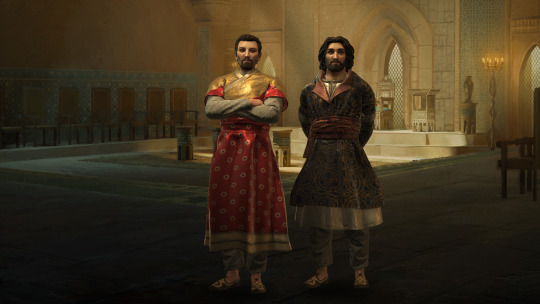
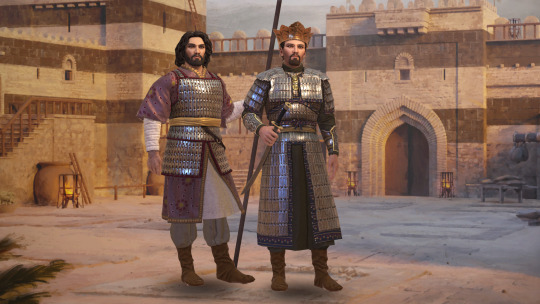
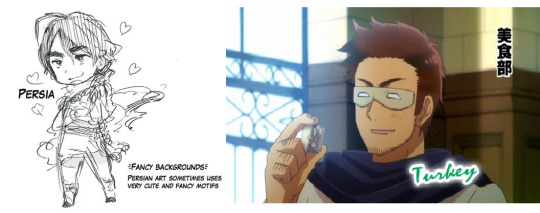
Dariush (Persia) and Sadik (Turkey/Ottoman Empire/Seljuk Turks), dressed for peace and war. I think I did pretty well! because of the whole What Is A Turk, Anyway? thing I went ahead and made Sadik ethnically Oghuz, which is why he looks more central Asian than he does Arabic or Anatolian.
#ck3 hetalia#aph persia#hws persia#aph turkey#hws turkey#sadik adnan#historical hetalia#medieval hetalia
20 notes
·
View notes
Text
''Other genetic studies based on Y-Chr in Kurds from Turkey, Georgia and Iran identify the dominant presence of haplogroups originated in Middle East (Anatolia or Mesopotamia) that show a close association with Jews, Lebanese and Turkish genes. Also, Iranian populations are close to Kurds. This again shows that languages and genes do not correlate because languages may be imposed by a genetic (but powerful) minority. This is the case of Turks: Anatolian people were settled down there since ancient prehistoric times, but a minority of people (Turks) coming from Central Asia imposed language in historical times.''
''In summary, it seems that Turks, Kurds and Armenians are very close genetically and all of them seem to have been living in the area for many millennia, because typical Asian HLA genes are
not found. Probably, small different ‘‘elite’’ invaders imposed different languages on these three different groups who originally spoke a similar pre-Indo European language. Armenians (Urartu 900 B.C.) and Kurds (’’Kurti‘‘) probably were initially splits of Hurrian groups (2nd millennium – 1st millennium B.C.), the Kurds remaining mainly at the mountains. Thus, the postulated Asian invasion (1200 B.C.) is not noticed on genetic studies.''
10 notes
·
View notes
Text
Good day everyone, are you aware about what's happening in our world? If yes then that's nice! If no, let's talk about it. But first what is our topic all about ?our topic for today is we're going to talk about the Israel vs Palestine conflict. Come with me!

So first what is the root of war? but before that let me give you a short background of the war.
BACKGROUND
The Israeli-Palestinian conflict dates back to the end of the nineteenth century. In 1947, the United Nations adopted Resolution 181, known as the Partition Plan, which sought to divide the British Mandate of Palestine into Arab and Jewish states. On May 14, 1948, the State of Israel was created, sparking the first Arab-Israeli War. The war ended in 1949 with Israel’s victory, but 750,000 Palestinians were displaced, and the territory was divided into 3 parts: the State of Israel, the West Bank (of the Jordan River), and the Gaza Strip. In 1917 Arthur bacflour declares that the israel is "national home for jewish people" that resulted to mandate the Palestine under the U.S. government.
The first war was on May 14, 1947. Hundreds of people's died on that war and over a decade the conflict between the Israel and Palestine was not still over yet. On october 9, 2023 the war has began, Israel declared a war to Gaza's Strip that cause of blocking of food, water, fuel and other natural resources. The blockade came response to the beginning of 2023 Israel and Hamas war attacks.
Eversince the two states have a conflict and they're still fighting for their rights until now but why we need to declare a war? why we need to end up like these? The conflict is driven in several factors: religion, border, territory, natural resources, origin of the people (ethnecity) and the latest is the nova music festival. Let's find out.
ORIGIN OF THE PEOPLE.
Palestine
The genetic profile of Palestinians has, for the first time, been studied by using human leukocyte antigen (HLA) gene variability and haplotypes. The comparison with other Mediterranean populations by using neighbor-joining dendrograms and correspondence analyses reveal that Palestinians are genetically very close to Jews and other Middle East populations, including Turks (Anatolians), Lebanese, Egyptians, Armenians, and Iranians. Archaeologic and genetic data support that both Jews and Palestinians came from the ancient Canaanites, who extensively mixed with Egyptians, Mesopotamian, and Anatolian peoples in ancient times.
ISRAEL
Quote from Charles Krauthammer - The Weekly Standard, May 11, 1998
"Israel is the very embodiment of Jewish continuity: It is the only nation on earth that inhabits the same land, bears the same name, speaks the same language, and worships the same God that it did 3,000 years ago. You dig the soil and you find pottery from Davidic times, coins from Bar Kokhba, and 2,000-year-old scrolls written in a script remarkably like the one that today advertises ice cream at the corner candy store."
The people of Israel (also called the "Jewish People") trace their origin to Abraham, who established the belief that there is only one God, the creator of the universe (see Torah). Abraham, his son Yitshak (Isaac), and grandson Jacob (Israel) are referred to as the patriarchs of the Israelites. All three patriarchs lived in the Land of Canaan, which later became known as the Land of Israel. They and their wives are buried in the Ma'arat HaMachpela, the Tomb of the Patriarchs, in Hebron (Genesis Chapter 23).
(https://www.science.co.il/israel-history/)
Thus, Palestinian-Jewish rivalry is based in cultural and religious, but not in genetic, differences. The relatively close relatedness of both Jews and Palestinians to western Mediterranean populations reflects the continuous circum-Mediterranean cultural and gene flow that have occurred in prehistoric and historic times. This flow overtly contradicts the demic diffusion model of western Mediterranean populations substitution by agriculturalists coming from the Middle East in the Mesolithic-Neolithic transition.
Some of these are jews and some of these are arab and there's a lot of genetics that they have including the Egyptian and their other ancestral who attacks the israel in the past they have different cultures, people's that makes them have a different social beliefs too and because of that the conflict begins.
RELIGION
Everyone have a different beliefs base on our different environment where we belongs to. Israel and Palestine have a different religion and culture that they're still preserving.
Israel
Majority of the israeli have a (78%) of jews followed by muslims, their religion called judaism. Judaism is the first and one of the oldest of the great monotheistic faiths.
Jewish people's serving their God by study and prayer and by the observance of the commandments. This faithfulness to the biblical Covenant can understood as the "vocation", "witness" of the Jewish people.
The Land of Israel is central to the history, life, hopes and aspirations of the Jewish people. It is toward Jerusalem that observant Jews turn in prayer, and it is here, in the Land promised in the Bible, that Jewish custom and tradition, as well as the identity of the Jewish people, can be most fully realized.
Palestine
The majority of Palestinians are Muslims. All the residents are required to declare a religion on an identification card issue by israeli government.
Jerusalem is a very holy city held sacred to Palestinians, as well as Jews, Muslims and Christians alike across the world. The city is home to two important Islamic sites: the Al-Aqsa Mosque and the Dome of the Rock. Both sites, located in close proximity, commemorate the place where the Prophet Muhammad is believed to have prayed during his night journey and ascended into heaven (Isra and Miraj).
Both of them have a different culture and beliefs one of those is the holy land which is the Jerusalem. Jerusalem is the capital of the Israel but Palestine believes that they're the one who's living there before the Jews.
TERRITORY
After the world war 1 the Palestine is devided to two regions the West Bank and the Gaza's Strip and the borders between Palestine and Israel is the Jordan in the east, Lebanon and part of the modern Israel to the north.
The two states have a different natural resources, Palestine is rich in oil while Israel is rich in gold and copper.
And one of the cause of conflict is when the Jewish people goes behind the borders the people of the Gaza's Strip executing the people of Israel.
Gaza strip is known for militant group controlled by "hamass" a militant group of people that the U.S. and European Union considered as "terrorist".
Ever since they're still bargaining about the land that they're wanted to have but Israel wins. Palestine believes that they're the first people living in the Israel but the Jews believes that the land of Israel gave it to them by the God they called it as the "Land of the promises" but these Canaan people or the Palestinian people they're not believing to them because they're the one who lives first on that land and it makes the Jewish people become wrath until the battle has begun.
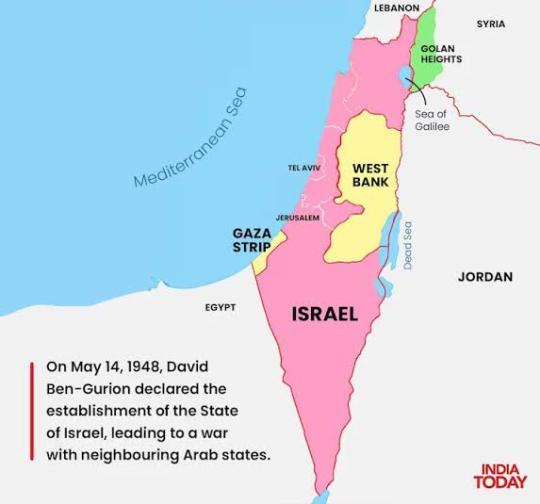
NATURAL RESOURCES
The two nations have their own natural resources that makes their economy productive Palestine is rich in oil while the Israel is rich in copper, gold,silver and other natural resources if they wanted to have an oil or any essentials they need to surpass the borders of each country that they wanted to go in order to have what they need.
NOVA MUSIC FESTIVAL

Nova music festival is located near the border of Gaza's Strip. The music festival of the israeli was attended of thousands people in the holiday of Sukkot. This party was supposed to be fun and memorable but there's an unexpected tragedy happen. This festival was intended to help those people of the Gaza's Strip the fund was supposed to be donated to the Gaza's strip since the Gaza's strip doesn't have enough natural resources or any resources including food, medicine, clothes and so on.
At sunrise on Saturday morning, Hamas gunmen launched hundreds of rockets and breached the border between Gaza and Israel, speeding through farmland towards a psychedelic trance music festival that had continued through the night, into the morning.
Assailants who broke through barricades at the border drove down Route 232, cutting a deadly path through rural kibbutzim communities. They blocked off the road to the festival from the north and the south, before swarming the sprawling site on foot, videos show. Then the militants encircled crowds on three sides like a scythe, gunning them down and forcing them to flee over fields to the east.
The Islamist militant group’s terror attack on the rave was not only highly coordinated, but designed for maximum carnage, the scale and scope of which is only just beginning to come to light now, one week on. Heavily armed gunmen choked off almost all avenues of escape, trapping crowds, while simultaneously targeting shelters where people were hiding, killing them en masse, CNN’s analysis of more than 50 videos and interviews with 13 survivors shows.
Thousands of Israelis and foreign nationals had descended on the Negev desert in southern Israel for the music festival, known as Nova, marking the Jewish holiday Sukkot and touted as an event celebrating “unity and love.”
When the booms of rockets rang out overhead around 6:30 a.m., few noticed over the whomping electronic beats. Others, accustomed to rocket fire from Gaza, thought little of it. But not long after organizers stopped the music, and security ushered people towards the exits, the chaos started.

After that case the president of Israel made a decision to declare a war to defend his country from the terrorist and for the other foreigns that involves to the case.
THE DECLARATION OF WAR
In response to the attack, Israel has declared war and launched “Operation Swords of Iron,” striking suspected Hamas and Islamic Jihad targets in Gaza.
Between October 7 and 12, Israel dropped 6,000 bombs on the impoverished territory – that’s equivalent to the total number of airstrikes on Gaza during the entire 2014 Gaza-Israel conflict, which lasted 50 days.
On october 9, 2023 Israel made their final decision to declare a war to Gaza's strip.
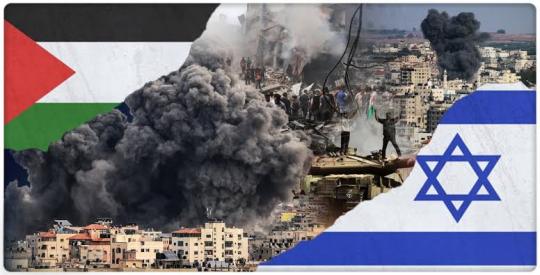
We don't have to end like these some of them are innocent and they are clueless about what's happening. The war of these two nations becomes intense to the point that the anger that they're carrying on makes them arrogant instead of making a propaganda we should do it in a good communication to avoid the war and to protect your fellow citizens too.
How about you? what is your opinion about our topic? are you a pro Israel? or a pro Palestine?
3 notes
·
View notes
Note
Are Turkish People Asian, middle eastern or European? // Turkish anon here. The majority of Turks consider themselves Eurasian or Anatolian. Being neighbor to the Middle East, being between Europe and Asia also causes identity crisis for some of us. For this reason, there are also those who consider themselves neither European, Asian nor Middle Eastern, just "Turkish".

Thank you, Anons!
7 notes
·
View notes
Text
Saints&Reading: Sunday, March 12, 2023
march12_february
SAINT GREGORY PALAMAS, ARCHBISHOP OF THESSALONIKA (1359)
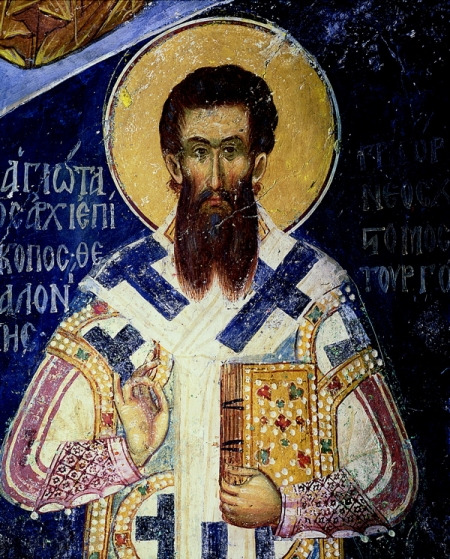
“ When we strive with diligent sobriety to keep watch over our rational faculties, to control and correct them, how else can we succeed in this task except by collecting our mind, which is dispersed abroad through the senses, and bringing it back into the world within, into the heart itself, which is the storehouse of all our thoughts?"
"Because the Deity is goodness itself, true mercy and an abyss of loving bounty - or, rather, He is that which embraces and contains this abyss, since He transcends every name that is named and everything we can conceive - we can receive mercy only by union with Him. We unite ourselves to Him, in so far as this is possible, by participating in the godlike virtues and by entering into communion with Him through prayer and praise. Because the virtues are similitudes of God, the participate in them puts us in a fit state to receive the Deity, yet it does not actually unite us to Him."
Our father among the saints Gregory Palamas (1296-1359), Archbishop of Thessalonica, was a monk of Mount Athos in Greece (at Vatopedi Monastery and Esphigmenou Monastery), and later became Archbishop of Thessalonica. He was a preeminent theologian and a proponent of hesychastic theology. His feast days in the Church are November 14 and the second Sunday of Great Lent as the Sunday of St. Gregory Palamas.
He was probably born at Constantinople of a noble Anatolian family. From his youth, he was attracted to the monastic ideal, and successfully persuaded his brothers and sisters, along with his widowed mother, to take up the monastic life. Around 1318 he and his two brothers went to Mount Athos, where they learned firsthand the traditional hesychastic way of contemplative prayer.
With the encroachment of the Turks, he was forced to flee to Thessalonica, being ordained a priest there in 1326. Afterward, he took up the eremetic life at a mountain near Beroea, and eventually returned to Athos in 1331. Six years later, he became involved in a controversy with Barlaam, a Greek monk from Calabria, Italy.
He was initially asked by his fellow monks on Mount Athos to defend them from the charges of Barlaam. Barlaam believed that philosophers had better knowledge of God than did the prophets, and he valued education and learning more than contemplative prayer. He stated the unknowability of God in an extreme form, having been influenced by a reductionist interpretation of the writings of St. Dionysius the Areopagite. As such, he believed the monks on Mount Athos were wasting their time in contemplative prayer when they should instead be studying to gain intellectual knowledge.
When St. Gregory criticized Barlaam's rationalism, Barlaam replied with a vicious attack on the hesychastic life of the Athonite monks. Gregory's rebuttal was the Triads in defense of the Holy Hesychasts (c. 1338), a brilliant work whose teaching was affirmed by his fellow Hagiorites, who met together in a council during 1340-1341, issuing a statement known as the Hagioritic Tome, which supported Gregory's theology.
A synod held in Constantinople in 1341 also supported St. Gregory's views, condemning Barlaam. Later, in 1344, the opponents of hesychasm secured a condemnation for heresy and excommunication for Gregory, the saint's theology was reaffirmed at two further synods held in Constantinople in 1347 and 1351. Collectively, these three synods in Constantinople are held by many Orthodox Christians and several prominent theologians to constitute the Ninth Ecumenical Council. Between the latter two synods, Gregory composed the One Hundred and Fifty Chapters, a concise exposition of his theology.
In 1347, he was consecrated Archbishop of Thessalonica, but the political climate made it impossible for him to take up his see until 1350. During a voyage to the Imperial capital, he was captured by the Turks and held in captivity for over a year. He died in 1359 and was subsequently glorified by the Orthodox Church in 1368.
Contrary to Barlaam, Gregory asserted that the prophets in fact had greater knowledge of God, because they had actually seen or heard God himself. Addressing the question of how it is possible for humans to have knowledge of a transcendent and unknowable God, he drew a distinction between knowing God in his essence (in Greek, ουσία) and knowing God in his energies (in Greek, ενέργειαι). He maintained the Orthodox doctrine that it remains impossible to know God in his essence (God in himself), but possible to know God in his energies (to know what God does, and who he is in relation to the creation and to man), as God reveals himself to humanity. In doing so, he made reference to the Cappadocian Fathers and other early Christian writers.
Gregory further asserted that when the Apostles Peter, James and John witnessed the Transfiguration of Jesus Christ on Mount Tabor, that they were in fact seeing the uncreated light of God; and that it is possible for others to be granted to see that same uncreated light of God with the help of repentance, spiritual discipline and contemplative prayer, although not in any automatic or mechanistic fashion.
He continually stressed the Biblical vision of the human person as a united whole, both body and soul. Thus, he argued that the physical side of hesychastic prayer was an integral part of the contemplative monastic way, and that the claim by some of the monks of seeing the uncreated light was indeed legitimate. Like St. Simeon the New Theologian, he also laid great stress in his spiritual teaching on the vision of the divine light.
St. Gregory Palamas Cathedral in Thessalonika, preserved his holy relics.
Source: Orthodoxwiki

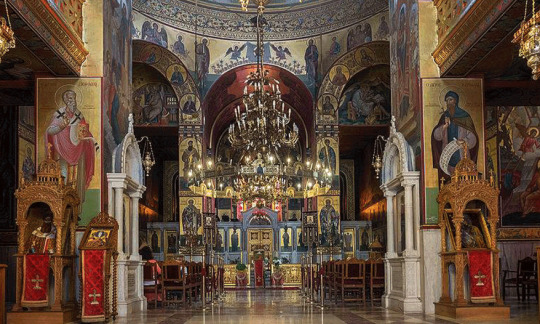
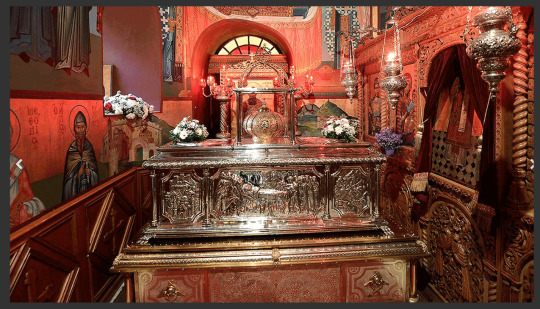
images source: Thessaloniki tourism

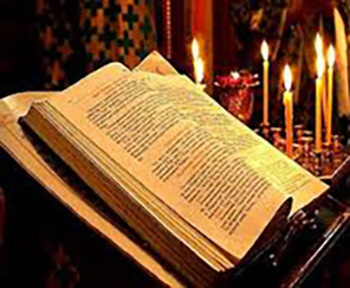
LUKE 24:36-53
36 Now as they said these things, Jesus Himself stood in the midst of them, and said to them, "Peace to you."37 But they were terrified and frightened, and supposed they had seen a spirit. 38 And He said to them, "Why are you troubled? And why do doubts arise in your hearts? 39 Behold My hands and My feet, that it is I Myself. Handle Me and see, for a spirit does not have flesh and bones as you see I have. 40 When He had said this, He showed them His hands and His feet.41 But while they still did not believe for joy, and marveled, He said to them, "Have you any food here?" 42 So they gave Him a piece of a broiled fish and some honeycomb. 43 And He took it and ate in their presence. 44 Then He said to them, "These are the words which I spoke to you while I was still with you, that all things must be fulfilled which were written in the Law of Moses and the Prophets and the Psalms concerning Me." 45 And He opened their understanding, that they might comprehend the Scriptures. 46 Then He said to them, "Thus it is written, and thus it was necessary for the Christ to suffer and to rise from the dead the third day, 47 and that repentance and remission of sins should be preached in His name to all nations, beginning at Jerusalem. 48 And you are witnesses of these things. 49 Behold, I send the Promise of My Father upon you; but tarry in the city of Jerusalem until you are endued with power from on high. 50 And He led them out as far as Bethany, and He lifted His hands and blessed them. 51 Now it came to pass, while He blessed them, that He was parted from them and carried up into heaven. 52 And they worshiped Him, and returned to Jerusalem with great joy, 53 and were continually in the temple praising and blessing God. Amen.
HEBREWS 1:10-2:3
10 And:"You, LORD, in the beginning laid the foundation of the earth, And the heavens are the work of Your hands.11They will perish, but You remain; And they will all grow old like a garment; 12 Like a cloak You will fold them up, And they will be changed. But You are the same, And Your years will not fail." 13 But to which of the angels has He ever said:"Sit at My right hand, Till I make Your enemies Your footstool"? 14 Are they not all ministering spirits sent forth to minister for those who will inherit salvation?
1 Therefore, we must give the more earnest heed to the things we have heard, lest we drift away. 2 For if the word spoken through angels proved steadfast, and every transgression and disobedience received a just reward, 3 how shall we escape if we neglect so great a salvation, which at the first began to be spoken by the Lord, and was confirmed to us by those who heard Him,
#orthodoxy#orthodoxchristianity#easternorthodoxchurch#originofchristianity#spirituality#holyscriptures#gospel#bible#wisdom
5 notes
·
View notes
Text
Some stuff from the articles I read:
-The Seljuks had started to disintegrate even before Mongol conquest
-They became Ilkhanid vassals as nominal rulers; the Mongols appointed governors in Anatolian provinces without changing the administrative cadre, and the region would remain in Ilkhanid grip until its disintegration
-It’s said that the Mongol rule prompted further Turkicization of the area. Seljuk Empire including Rum Sultanate received a lot of Persian influences, including language (court and literature), even though the rulers were Turks themselves, but after the battle of Kose Dag a lot of Turkoman nomads moved into the area and eventually made their way into the political and military fold. The Mongols also abolished the Caliphate system, so Caliphate is a public institution led by Islamic stewards or Caliphs, further severing Anatolia from the influences of Islamic East aka Iran.
-Actually there aren’t much lmao. Any article (that’s not from Wikipedia) that I’ve read about the Seljuks under Ilkhanate only revolves around freaking architectural heritage developed during its rule. Architecture!! Like, of all things lmao?? WHERE ARE THE POLITICAL OR HISTORICAL RECORDS? Seriously where are they?? The Seljuks were ‘only’ vassals but with the level of interference by the Ilkhanids in the political arena, with the people they had moved from Inner Asia to Anatolia and all, there should’ve been plenty records to draw narratives from!! There’s basically nada. Or just TOO little that they don’t tell me much. Rly idk why lol the Russians seriously weren’t this bad and they weren’t the best at keeping records. I was also told that there’s similarly little result on Seljuk history under Ilkhanate in Russan language articles, like ughhhhhh. Why even!!
-Yes, I read the Turks don’t like admitting that they’ve been conquered by the Mongols but idk if the lack of records or study on them is indicative on this hha
4 notes
·
View notes
Note
Isnt kurdish and turkic ‘ethnicities’ very different, some alot more than others. I saw a post of yours in a tag and i just always thought they were geographically close right now but genetically and historically far apart, please correct me if im wrong, id love to hear🙏 Its an interesting study, forgive me for odd question. Have a nice day
Hey, totally fine, that's what I'm here for.
First I wanna say that kurdish is an (Iranian) ethnicity native to Western Asia along the Zagros mountains and 'turkic' is a large group of different ethnicities across Central, North, South and West Asia and Eastern Europe that share cultural and linguistic ties.
Examples of turkic people are turkish people/turks from Anatolia Western Asia aka Middle East, Rumelian Turks from the Balkans, Chuvash from Russia, Yakuts in Siberia Russia, (Crimean) Tatars, Uighurs, Kazakhs, Turkmens etc etc... here's the link to a tiktok vid that has a bunch of them with according info and currently 5 whole parts in total:
I, for example, am an anatolian turk/turkish. Turkish people are the largest turkic people with over 80 Million people. The modern day turks' ancestors migrated from Central Asia to Western Asia about 1000 years ago and mixed with the locals, therefore we share similarities with other ethnic groups in the area.
Hence the name, turkic migration, we spread out.
And you're right, turks and kurds are in fact geographically really close, we live in the same country, which is turkey and used to live in the same area in the same Empire, the Ottoman Empire. But ever since the Ottoman Empire collapsed and new borders were drawn, kurds were spread out in mainly 4 countries: Turkey, Iraq, Iran and Syria.
But Kurds and Turks, Persians, Arabs didn't always have a peaceful history together. Starting from riots to massacres to banning Kurdish cultural music and language..
Culturally there's been overlaps over the past centuries due to this geographical proximity, but we have to keep in mind that those two ethnicities belong to two different groups, Iranian and Turkic.
Kurds speak a language with 4 main dialects: Kurmancî, Soranî, Lakî and Zazakî. There's even more.
Kurdish is an Indo-European language that belongs to the Western Iranian branch while Turkish is not related to any Indo-European languages at all. It is a Turkic-Oghuz language, related to Azerbaijani and many other languages in that specific branch. Genetically there's not that much of a closeness either due to this but our phenotypes can look very close. Generally you can distinguish, we're not monoliths though ofc.
Anyone feel free to add.
Hope that answers ur questions.
#asks#kurdish#turkish#the middle east#middle eastern#muslim#western asia#west asia#middle east#turkic#turkic people#iranian#linguistics
4 notes
·
View notes
Text
Everything You Need to Know About Choosing Turkey Travel Packages
In the regional Turkish language, Turkey is often referred to as Türkiye. It is primarily found in Western Asia, in the Anatolian peninsula. Since one leg is connected to Europe and the other to Asia, it is also referred to as a bridge between the two continents. The Black Sea, Marmara Sea, Aegean Sea, and the Mediterranean Sea border the nation on three sides. It is the homeland of Turks who long ago migrated from Mongolia's interior. Iran, Iraq, Azerbaijan, Greece, Bulgaria, Georgia, Armenia, and Syria are all within modern Turkey's borders.
When it comes to the area, the Turkish race initially settled in western modern Turkey, where they went on to reside under the name Selcuk Beylics. The Osmanoullar community was established in the region where Bursa was the capital, some 4-5 hours' drive from Istanbul today, as a result of the separation of Selçuk Beylics into several groups over time. They transferred the capital from Bursa to Istanbul in later years. They lived through the golden eras when their borders stretched across tremendous periods. They eventually reached a point of stagnation and dissolution and handed the historical reins over to the Modern Turkish Republic.
Understanding Your Travel Style and Preferences
Understanding your travel tastes and style is the first step in selecting Turkey Holiday Packages. Think about the following:
Who are you as a traveller? Are you a daring backpacker or a pampered traveller seeking a more relaxing experience?
What do you find interesting? Do you favour outdoor pursuits like hiking and environmental exploration or are you more interested in history and culture?
What is your spending plan? What are your financial limits for a tour package?
What kind of transportation do you prefer? Would you like to take the bus, the train, or the aeroplane?
What kind of lodging do you prefer? Do you feel at ease staying in hostels or hotels, or do you like private lodging?
You can focus on tour packages that are suited to your needs by focusing on those that fit your travel interests and style.
Researching and Comparing Tour Options
Researching and contrasting tour choices is the next stage after you have a firm grasp of your travel interests and style. Here are a few pieces of advice:
Make use of reliable travel websites: Check out Turkey Holiday Packages from credible online sources as they offer testimonials and rankings from tourists who have taken the tours.
Visit the websites of the trip operators: The majority of tour operators have their websites where you may obtain details about the tours they provide, including itineraries, costs, and lodging choices.
Read Reviews: You may learn a lot about the tour's quality, the degree of customer care, and the entire experience from reviews written by other tourists.
Compare costs before choosing one product over another. Take into account the tour's overall worth and what is included in the cost. Some Turkey Travel Packages From India may appear more expensive, but they provide greater value for the money since they provide more activities or better accommodations.
Key Considerations for Choosing a Turkey Tour Package
There are numerous important factors to keep in mind when contrasting Turkey Travel Packages From India.
1. Itinerary: Finding a tour package that includes the locations and activities you are interested in is a good idea. Take into account the tour's duration and speed. Will you feel rushed or that you'll have plenty of time to visit each place?
2. Inclusions: Make sure you are aware of the tour package's inclusions. Does it include lodging, travel, meals, and entertainment? Do you need to budget for any additional fees or expenses?
3. Tour size: The magnitude of the excursion should be taken into consideration. Which do you prefer—a smaller, more private one or a bigger, more communal one?
4. Tour guide: Your trip can be greatly improved by a skilled and amiable tour guide. Make sure you check the tour guide's licence and read customer feedback.
Finding Turkey Travel Packages From India that allow you flexibility in terms of the schedule and activities is important. You will then have the option to go exploring on your own or to forego participating in activities that bore you.
Frequently Asked Questions
Q 1: Are private tours or group tours preferable for seeing Turkey?
A: That depends on what you desire. Private Turkey holiday packages from mumbai can be customised to your unique interests and demands, while group tours are typically less expensive and provide a social experience.
Q 2.Is travelling to Turkey safe?
A: Travellers can feel secure visiting Turkey. But you should always proceed with caution and pay attention to your surroundings.
Q3. When is the ideal time to travel to Turkey?
A: The months of April to May and September to November are ideal for travelling to Turkey because of the nice weather and reduced tourist traffic.
Q 4: Is a visa required to enter Turkey?
A: The majority of visitors do require visas to enter Turkey. You have two options for applying for a visa: online or at the airport.
Conclusion
Your travel interests, money, and style must all be carefully considered before selecting the ideal Turkey holiday packages from mumbai. You may choose wisely and have an unforgettable trip to Turkey by doing your homework, comparing your alternatives, and considering crucial factors like itinerary, inclusions, tour size, tour guide, and flexibility.
To make your tour the most suitable for you, don't forget to read reviews, ask questions, and don't be scared to customise it. Considering all there is to see and do in Turkey, picking the appropriate vacation package might be crucial. You won't regret it, so go ahead and reserve your ideal Turkey vacation package today!
3 notes
·
View notes
Note
wrt to the ask before this about Greek nationalism, I feel so, sooooo out of the loop in terms of having a connection to Greece like that because my dad, grandparents, and both sides of their entire family are from Istanbul/Cappadocia and left in the 60s for Canada, rather than to Greece with the rest of the 1920s population exchange. No one in my direct family has ever lived in Greece!!! My cousins' grandparents were exchanged so their memories are pretty typically Greek (to me) but my dad/grandparents NEVER lived in Greece as adults, never had Greek citizenship even(!!!), despite being Greek enough to be targets of rising Turkish nationalism. so I'd be at diaspora events and people were like yeah we go to Athens every other summer, the iiiiiiiiiiislands, etc. and I'm like uh....so what's up with Prinkipos :D and no one could relate. i'm also gay so between the not!Greek-ing correctly and the not!religiously accepted, it's kind of very awful :)
many Greeks in Greece 🤝 you: not traveling outside our country of residence and only seeing the Greek islands on posters + not accepted by the religion + feeling strangers to their Greekness/tradition (because of modernization and Americanisation)
Bonus round:
many Greeks in Greece 🤝 you: not having visited the places our family were expelled from
hope that made you feel right at home.....? /j 😂
(I assume you didn't travel there by the ask's wording. Please correct me if I am wrong)
It could be worth visiting north Greece if you can. Since many cities there have 70-80% descendants of Anatolian immigrants, you might feel some connection and build something on it for your identity.
I understand that even Greeks in Greece are at least united by a few more things (hatred for Koulis let's say) and don't face the same identity crisis as you. Yours doesn't sound like a nice predicament to be when you are searching for your identity and not even "your community" can provide a sense of belonging :/ So you are kinda "on the air", as we say here.
Your family is also more "Greek Anatolian" (incl. East Thrace) than "Greek from the mainland/islands" or "Greek from Cyprus", hence that makes you a minority from what I gather. Which is kinda similar to Anatolian Greeks coming to the mainland in 1920 and finding themselves among people they couldn't relate to in many ways. Only you are experiencing it on veeery foreign soil a few generations later, so extra suffering points for that 😬
The good thing is, the Anatolian Greeks made it. They built a future out of nothing in an environment that called them "Turk seeds", and their children lacked nothing in education and upholding Greekness compared to the rest of Greece. Their offspring is also rumored to be the most courteous, generous, cosmopolitan and laid-back people in the country. I don't think it has so much to do with the soil the Anatolian Greeks went after their expulsion because with these qualities you have the potential to excel anywhere. I trust there were some of these good elements in your upbringing (even subconsciously). So you will, too, shine with your type of Greekness and with whatever you have in your arsenal, even when your environment looks estranging.
#Anatolian Greeks: making shit work in this gutter no matter what since 1920#they are the proof shit will work#you got this anon!#greek diaspora#answered
17 notes
·
View notes